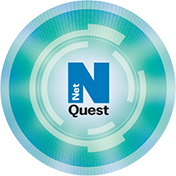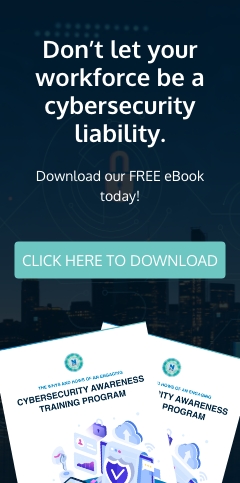Every time you type on your phone, scroll through a web page, or buy something online, you leave a digital trail behind. It's like tiny footprints across the internet, showing where you've been and what you've done. With data breaches and misuse becoming commonplace, it's more important than ever to take steps to safeguard your data.
Data Privacy Day is an opportunity to equip yourself with the knowledge and tools needed to navigate the digital world safely and securely.
What is Data Privacy Day?
Every January 28th, the world celebrates Data Privacy Day, a global effort aimed at raising awareness about protecting our information online. This day marks the anniversary of the first international data protection treaty signed in 1981, which was a pivotal moment in online privacy rights.
Recognizing the growing importance of data privacy as technology evolves, the National Cybersecurity Alliance expanded Data Privacy Day to Data Privacy Week in 2021.
How can you enhance your data privacy?
Safeguard your data with these five essential steps:
1. Know your rights
Understanding your data protection rights enables you to take better control of your privacy. Here are some key rights you possess:
- Access – You have the right to know what personal data companies collect about you, why they collect it, and who they share it with.
- Correction – You can request companies to fix inaccurate or incomplete information they hold about you.
- Deletion – In some cases, you can ask companies to permanently remove your personal data from their systems.
- Opt-out – You may opt out of companies selling your personal information to third parties.
In the United States, multiple federal, state, and sector-specific laws grant you control over your personal information, including:
- Privacy Act of 1974 – applies to personal data collected by federal agencies, granting individuals rights to access, correct, and amend their records
- Fair Credit Reporting Act – regulates the collection and use of credit information, allowing individuals to access and contest their credit reports
- Health Insurance Portability and Accountability Act of 1996 – protects the privacy of healthcare information
- Gramm-Leach-Bliley Act – protects the privacy of financial information held by banks and other financial institutions
2. Clear your cookies
Cookies are bits of information that websites store on your device to remember your preferences and keep track of your online activities. While pop-up reminders to accept cookies may seem harmless, they can give companies a glimpse into your browsing history.
Regularly clearing cookies from your browser helps you regain control over your online footprint. Many web browsers provide settings to manage and delete cookies, allowing you to choose which sites can store them.
Related reading: Quiz: How well do you know basic cybersecurity lingo?
3. Use privacy-protecting browsers
Consider switching to browsers that prioritize user privacy. DuckDuckGo and Firefox, for example, are known for their strong privacy features. These browsers block third-party trackers by default, preventing websites from monitoring your online activities. They also offer enhanced privacy settings, allowing you to customize your browsing experience while minimizing data collection.
4. Improve password security
Enhancing password security is critical in safeguarding your online accounts from unauthorized access. Avoid using easily guessable passwords, such as "123456," “admin,” and common words. Instead, use passphrases. Unlike traditional passwords, passphrases are longer and more complex, consisting of a string of random words such as "SingingOttersBeneathMars." This makes them significantly harder to crack for hackers.
Make sure not to use the same password across multiple accounts. Otherwise, if your password gets compromised, all other accounts using that password become vulnerable to cyberattacks.
To simplify the process of managing multiple passwords, use a reputable password manager. It serves as a secure vault, keeping all your passwords behind a single master password. Password managers can also generate strong, unique passwords for each account.
5. Enable multifactor authentication (MFA)
MFA bolsters your defenses against unauthorized access by requiring more than one proof of identity beyond a password. Examples of such proofs may include biometrics, hardware tokens, and one-time PINs. With MFA enabled, even if cybercriminals get hold of your password, they will not be able to access your account until they fulfill all the MFA requirements.
Remember, protecting your data isn't just a one-day or one-week event. It requires year-round vigilance and proactive measures to safeguard your digital footprint.
To better safeguard your data, turn to the IT experts at NetQuest. We offer a comprehensive suite of cybersecurity services to give you all the protection your business needs, at a price you can afford. Get in touch with us today.


